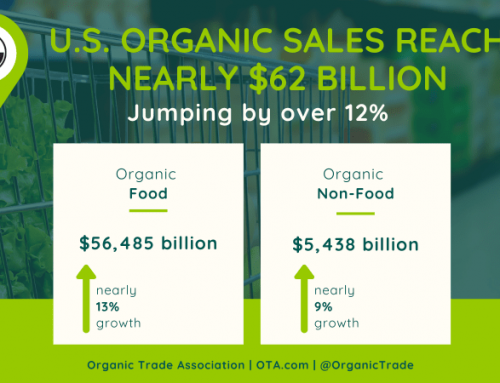OTA Food Safety Task Force urges FDA to base proposed produce safety and preventive controls (HACCP) rules on science and data, and not to conflict with existing USDA National Organic Program regulations.
While undeniably important as a major step in improving the safety of the United States’ food supply, FDA, as part of the Food Safety Modernization Act (FSMA), issued proposed rules that would have major impact on growers and handlers of organic produce.
In conveying the concerns of organic producers, the Organic Trade Association assembled a Food Safety Task Force, of which Agrisystems International served as a member, to analyze more than 2,000 pages of proposed regulations and provide FDA with key scientific data and comments to ensure the proposed rules align with the good and safe practices of certified organic growers adhering to strict USDA National Organic Program standards.
Consensus across the organic industry is that the current proposed rules as drafted could potentially decrease or eliminate organic products, and increase prices due to limited supply for consumers. Based on weekly task force meetings, member surveys to gain input on key concerns from organic industry constituents, and input from experts, OTA submitted comments before the November 22 deadline.
The key messages from Agrisystems International and the organic industry to FDA: base food safety rules on science; don’t be overly prescriptive; and don’t conflict with existing USDA NOP regulations.
Full OTA Task Force comments to FDA on the proposed Produce Safety Rule can be reviewed here. Also, click here to review full comments regarding FDA’s proposed preventive controls (HACCP) rule and its potential impact on organic producers.
Proposed Produce Safety Rule
A primary concern for organic produce growers and handlers is FDA’s proposed imposition of a 9-month interval for the application of untreated manure to fields, and a 45-day interval for the application of compost containing any animal matter. Currently, the USDA National Organic Program requires a 90- or 120-day (situation dependent) minimal application interval for untreated manure and no application interval for composted manure. Feedback provided by OTA to FDA included:
- Compost/Manure Application Intervals –OTA’s Task Force provided key data to reflect that FDA’s proposed 9 month application interval would be an economic burden to organic producers; may be in regulatory conflict with current USDA NOP precedent; and may not need to be that long to provide adequate food safety under certain controlled circumstances.
- Agricultural Water – Under the proposed rule, testing methods and intervals are very prescriptive, said the organic industry task force, which recommended removing prescriptive metrics from the rule itself, and allowing industry the flexibility to create risk-assessment and testing controls based on the individual level of risk for that entity, similar to HACCP methodology.
Preventive Controls (HACCP) Proposed Rule
Agrisystems International, along with the OTA Food Safety Task Force, recommended the following guidelines to FDA in evaluating proposed preventive controls (HACCP) in organic production:
- Don’t reinvent the wheel. Look to other regulatory rules already in place that address HACCP for processing (e.g., FDA seafood and juice; USDA meat), and ensure there are no conflicts.
- Ensure that there is no conflict for mixed-use operations that both produce and package produce, so that it is clear whether they must meet one or both of the rules.
- Focus on Risk and Supplier Verification, and less on “who owns the farm.”
- Don’t discount other current and effective food safety programs that may already in place at the farm level, such as Good Agricultural Practices, or other third-party verification programs.
- Periodic testing should be flexible enough to allow for the specific needs of the facility to be addressed in their food safety plan. Finished product testing is not an effective method of control.
In general, we are in agreement that food safety is everyone’s responsibility, and we appreciate the effort by FDA in the proposed rules to create structure to address food safety risks with human consumption of produce that is generally consumed raw. However, Agrisystems International will remain vigilant and involved on behalf of organic producers and our clientele in ensuring that any new food safety rules are aligned with regulations governing producers under the National Organic Program.










Leave A Comment